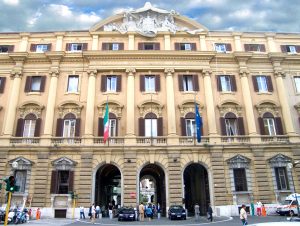In an age characterized by rapid technological advancement, fostering collaboration and innovation in governance is imperative.
The INTERLINK EU Project, short for Innovating Government and Citizen Co-Delivery for the Digital Single Market“, is a visionary initiative aimed at developing a transformative collaborative governance model. This model seeks to promote the reuse and sharing of existing public services by harnessing the power of partnerships between citizens, private actors, and public administrations.
Like any (beautiful) journey, it is coming to an end. So let’s go back to its goals, and the potential it holds for shaping the future of eGovernance.
Democratising eServices with a unique collaborative environment

The INTERLINK EU Project, funded through Horizon 2020, is at the forefront of this transformative change. Its primary goal is to develop a new governance model that empowers citizens and encourages public-private cooperation to optimize the delivery of public services within the DSM framework.
- Have a look at the official website to discover all the partners!
What are the Key Objectives?
1. Citizen Empowerment: The project seeks to engage citizens actively in the co-design and co-delivery of public services. By involving citizens, organizations, private sector in decision-making processes, the project aims to ensure that public services are tailored to meet their specific needs and preferences.
2. Public-Private Partnerships: INTERLINK recognizes the potential of private sector involvement in enhancing the efficiency and effectiveness of public services. By fostering collaboration between public administrations and private actors, the project aims to leverage resources and expertise for better service delivery.
3. Service Reusability and Sharing: One of the core principles of the project is the promotion of service reusability and sharing. By building on existing public services and infrastructure called INTERLINKERS, INTERLINK aims to reduce redundancy, save resources, and accelerate the development of new services.
4. Digital Transformation: The project emphasizes the importance of digitalization in achieving its goals. By harnessing digital technologies and data analytics, INTERLINK aims to streamline administrative processes, improve service quality, and enhance the overall user experience.
5. Policy Framework Development: INTERLINK is committed to developing a comprehensive policy framework that supports the adoption of its collaborative governance model. This framework will provide guidelines, standards, and best practices to guide public administrations and stakeholders in their efforts to implement the model.
- Want to deepen our work to know if we have achieved the goals? Read our deliverables, rich searches, data, and new views!
Pilot Activities in Italy, Spain, and Latvia: Transforming Governance in Europe

Pilot activities have been launched in Italy, Spain, and Latvia. They were instrumental in testing and refining the innovative governance model that promotes the co-delivery of public services through partnerships between citizens, private actors, and public administrations.
By addressing specific objectives tailored to the needs and challenges of each country, these pilot activities served as testbeds for innovative governance models that can potentially revolutionize how public services are delivered and how citizens participate in the decision-making process across Europe.
Curious to get to know our pilots better? You can find them here!
What’s next?

The INTERLINK EU Project represents a bold step toward reshaping the way eGovernance is conducted in Europe. By harnessing the collective power of citizens, private actors, and public administrations, it seeks to pave the way for a more collaborative, efficient, and digitally-driven future.
… And we will talk about all this at the last project meeting on 21 and 22 November in Riga, Latvia, hosted by the Ministry of Environmental Protection and Regional Development of the Republic of Latvia (VARAM).
Thanks for reading and see you next newsletter!





